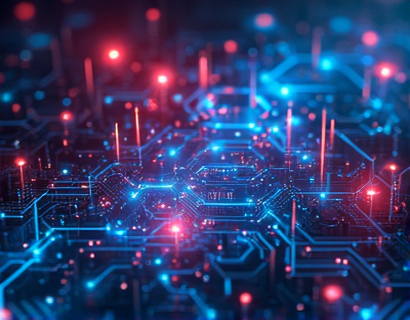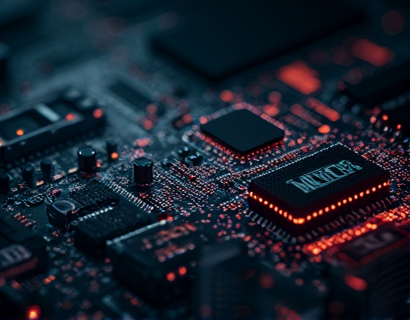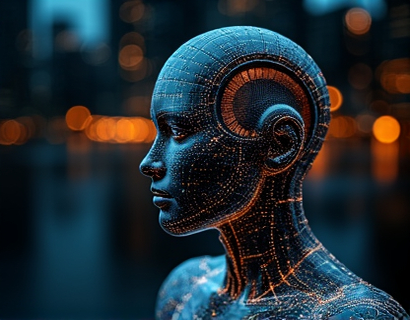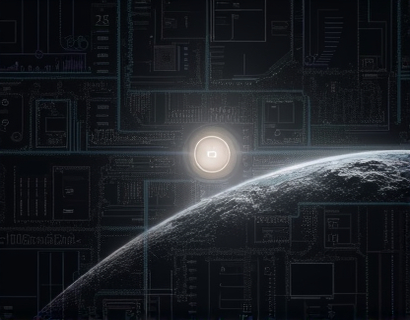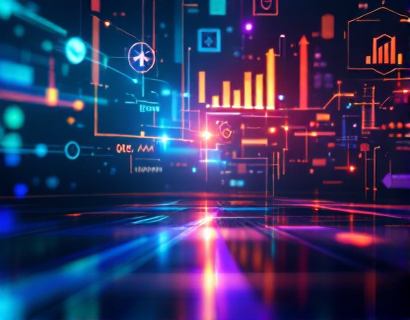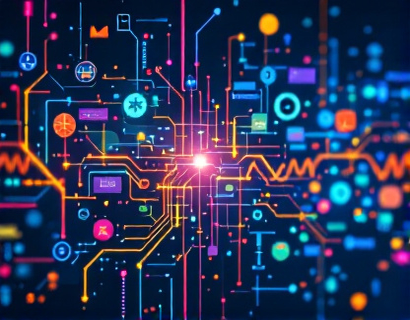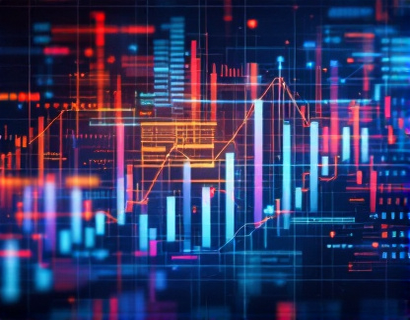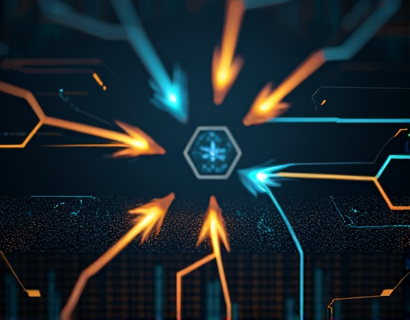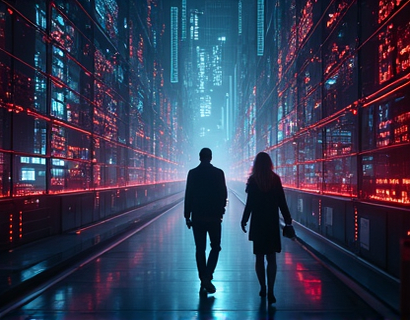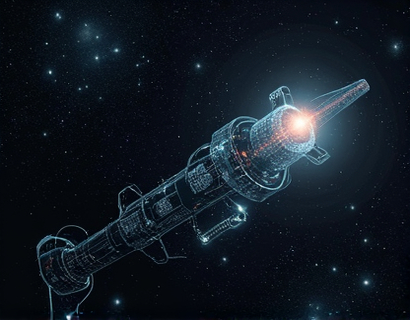Decentralized Productivity: Harnessing AI and Crypto for Next-Gen Digital Solutions
The intersection of cryptocurrency and artificial intelligence (AI) is giving rise to a new era of digital productivity, one that promises to transform how we work, collaborate, and manage tasks. This article delves into the transformative power of merging these two cutting-edge technologies to create decentralized solutions that enhance efficiency, simplify tasks, and redefine the digital landscape. For tech-savvy individuals interested in the potential of cryptocurrency, AI, and innovative digital solutions, this exploration offers valuable insights into the future of decentralized technology and AI-driven tools.
The concept of decentralized productivity leverages blockchain technology to create systems that are not controlled by a single entity but by a network of participants. This decentralization, combined with the computational power of AI, results in solutions that are more secure, transparent, and efficient. The synergy between AI and cryptocurrency creates a powerful toolkit for developing applications that can automate complex processes, ensure data integrity, and provide seamless user experiences.
Understanding Decentralized Productivity
Decentralized productivity refers to the use of decentralized technologies to improve and streamline productivity processes. In traditional centralized systems, a central authority manages and controls the flow of information and tasks. In contrast, decentralized systems distribute this control across a network, reducing the risk of single points of failure and enhancing security. When AI is integrated into these systems, the potential for automation and optimization becomes even more significant.
One of the key benefits of decentralized productivity is the elimination of intermediaries. By removing the need for central authorities, these systems reduce costs, increase speed, and enhance trust among participants. For instance, decentralized task management platforms can automate the assignment and tracking of tasks without the need for a central manager, ensuring that everyone involved has real-time access to the same information.
AI in Decentralized Systems
AI plays a crucial role in decentralized productivity by providing the intelligence needed to automate and optimize processes. Machine learning algorithms can analyze vast amounts of data to identify patterns, predict outcomes, and make decisions with minimal human intervention. In a decentralized context, these capabilities can be harnessed to create smart contracts that execute automatically when predefined conditions are met, ensuring that agreements are honored without the need for intermediaries.
Moreover, AI can enhance the user experience in decentralized applications by providing personalized recommendations, predictive analytics, and natural language processing. For example, a decentralized project management tool could use AI to suggest optimal task assignments based on team members' availability, skills, and past performance, thereby improving overall efficiency and productivity.
Cryptocurrency and Decentralized Finance (DeFi)
Cryptocurrency is a fundamental component of decentralized productivity, serving as the medium of exchange and storage of value within these systems. Decentralized Finance (DeFi) platforms build on blockchain technology to offer financial services such as lending, borrowing, and trading without traditional financial intermediaries. These platforms leverage smart contracts to automate transactions and ensure transparency and security.
In the context of productivity, DeFi can provide innovative solutions for funding and resource allocation. For instance, decentralized lending platforms can offer funding for projects and startups based on the performance and needs of the project, rather than traditional credit scores or collateral. This democratizes access to capital and fosters innovation by enabling a wider range of entities to participate in the economy.
Cutting-Edge Applications
The combination of AI and cryptocurrency is giving birth to a variety of cutting-edge applications that are redefining digital productivity. Here are some notable examples:
- Decentralized Task Management: Platforms like Taskcoin use blockchain to create a decentralized task market where users can earn cryptocurrency by completing tasks. AI algorithms optimize task allocation and ensure fair compensation based on task difficulty and user ratings.
- Smart Workspaces: AI-driven decentralized workspaces can dynamically allocate resources such as computing power and storage based on demand. For instance, a decentralized cloud computing platform can use AI to predict peak usage times and adjust resource allocation accordingly, ensuring optimal performance and cost efficiency.
- Collaborative Content Creation: Decentralized content creation platforms allow multiple contributors to work on a project simultaneously, with AI tools enhancing the creative process. For example, AI can assist in content generation, editing, and even predict trends to help creators stay relevant.
- Automated Reporting and Analytics: AI-powered decentralized analytics tools can process and analyze data from various sources in real-time, providing insights and generating reports without human intervention. This is particularly useful for businesses and organizations that need to make data-driven decisions quickly.
These applications not only enhance efficiency but also simplify complex tasks, making them accessible to a broader audience. The integration of AI ensures that these systems can adapt and improve over time, learning from user interactions and feedback to provide better services.
Future of Decentralized Technology and AI-Driven Solutions
The future of decentralized technology and AI-driven solutions is promising, with several trends and developments on the horizon. One significant trend is the increasing adoption of blockchain interoperability, which allows different blockchain networks to communicate and transfer assets seamlessly. This interoperability will enable more complex and integrated decentralized applications, enhancing their functionality and user experience.
Another area of growth is the development of more user-friendly interfaces for decentralized applications. As the technology matures, the barrier to entry for non-technical users will decrease, making these tools more accessible and widely adopted. AI will play a crucial role in this by providing intuitive interfaces and personalized experiences that cater to individual user needs.
Furthermore, the convergence of AI and blockchain is likely to lead to the creation of autonomous systems that can operate with minimal human oversight. These systems will be capable of self-management, self-improvement, and self-healing, ensuring high availability and reliability. In the realm of productivity, such autonomous systems can revolutionize how businesses operate, enabling them to focus on strategic initiatives while leaving operational tasks to intelligent machines.
Challenges and Considerations
While the potential of decentralized productivity and AI is vast, there are several challenges and considerations that need to be addressed. One of the primary concerns is scalability. Current blockchain technologies face limitations in terms of transaction throughput and processing speed, which can hinder the performance of decentralized applications. Research into layer 2 solutions and more efficient consensus mechanisms is ongoing to address these issues.
Another challenge is regulatory uncertainty. The decentralized nature of these technologies often conflicts with existing legal frameworks, leading to ambiguity and potential legal risks. As the ecosystem grows, there will be a need for clear regulations that balance innovation with consumer protection and financial stability.
Privacy is also a critical concern. While blockchain provides transparency, it can also expose sensitive information. Implementing advanced cryptographic techniques and zero-knowledge proofs can help maintain user privacy without compromising the integrity of the system.
Conclusion
The fusion of cryptocurrency and AI is paving the way for a new era of decentralized productivity, offering transformative solutions that enhance efficiency, simplify tasks, and redefine the digital landscape. By leveraging the strengths of both technologies, we can create more secure, transparent, and user-friendly applications that empower individuals and organizations alike. As the ecosystem continues to evolve, the possibilities for innovation and growth are endless, promising a future where technology serves humanity in the most efficient and effective manner.




